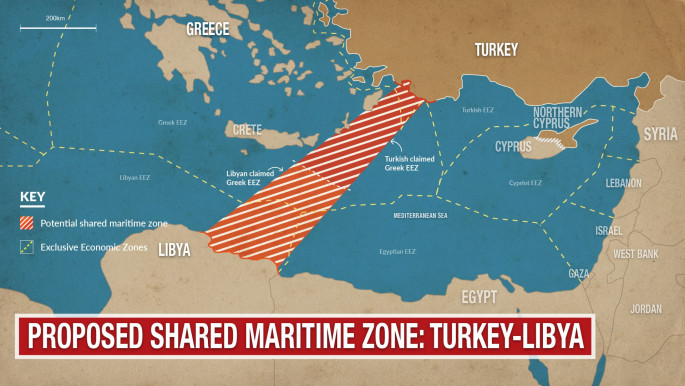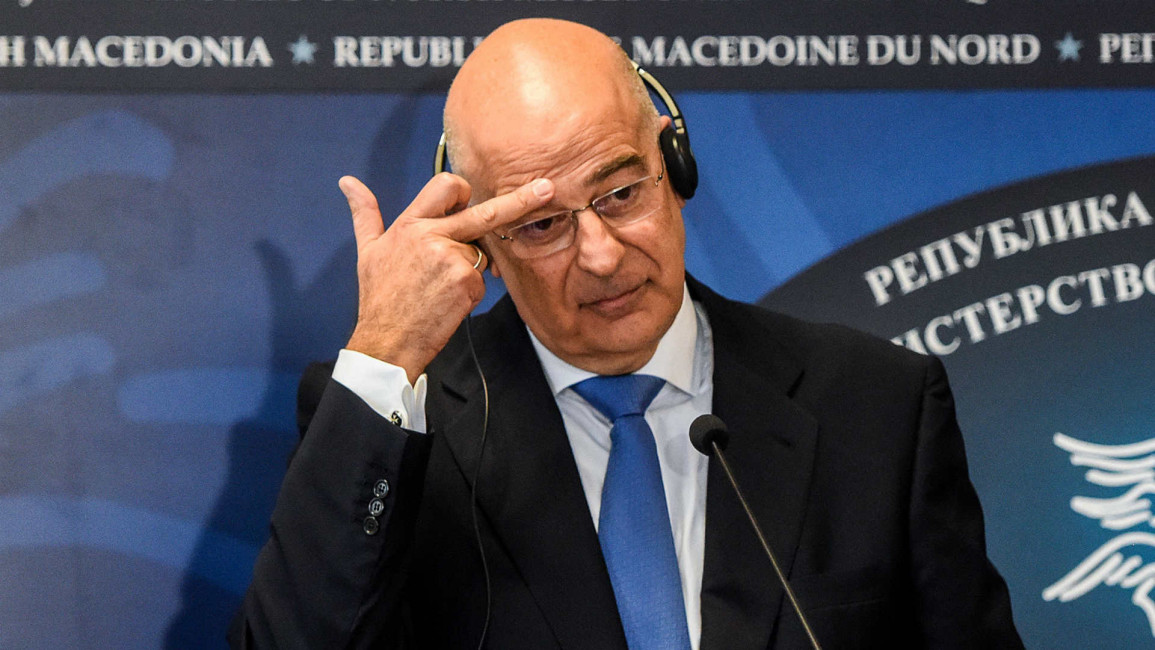Greece expels Libya ambassador over controversial maritime deal with Turkey
The Libyan envoy has been given 72 hours to leave the country.
The move comes hours after Turkey's parliament passed the agreement, which grants it access to an economic zone across a large strip of the eastern Mediterranean.
Turkish legislators approved the agreement, brushing aside objections by Greece, Cyprus, Egypt and the rival and competing power base in Libya, the Libyan National Army (LNA) led by warlord Khalifa Haftar.
Comment: It's time for the ICC to indict Haftar for war crimes
Turkish President Recep Tayyip Erdogan signed the agreement last week with Libya's Tripoli-based government, led by Fayez Sarraj, which controls parts of the country's west. The two also signed a security cooperation agreement.
Along with Cyprus and Egypt, Greece has strongly criticised the boundary agreement since its inception, calling it a serious breach of international law. The deal has added further tension to an ongoing dispute with Greece, Cyprus and Egypt over oil-and-gas drilling rights in the eastern Mediterranean.
The deals sparked outrage in the Libyan parliament, which is based in the east and is aligned with Haftar's self-styled LNA. Lawmakers there denounced the agreements as a "flagrant breach" of Libya's security and sovereignty, saying they grant the Turkish government the right to use Libyan airspace and waters as well as build military bases on Libyan soil.
 |
|
| Click to enlarge |
Greece's prime minister, Kyriakos Mitsotakis, said he discussed the issue and other differences between Greece and Turkey with Erdogan on the sidelines of a NATO summit Wednesday in London, adding that both leaders "noted disagreements".
Greece's foreign minister on Monday had threatened to expel the Libyan ambassador to Athens unless provided with details of the deal.
Since 2015, Libya has been divided between two competing governments, one in the east, based in Benghazi, and the other in the west, in Tripoli.
While the LNA and the eastern government enjoy the support of France, Russia and key Arab countries including Saudi Arabia, Egypt and the UAE, the Tripoli-based government is backed by Italy, Turkey and Qatar.



